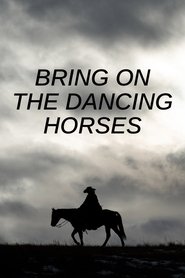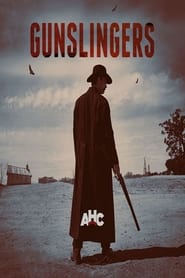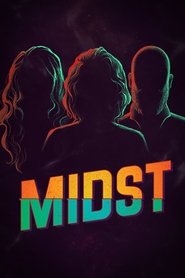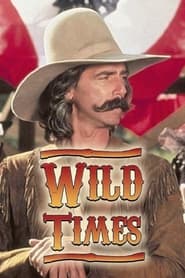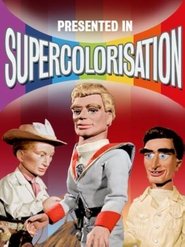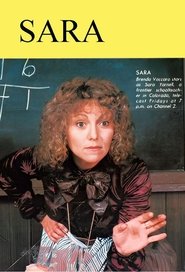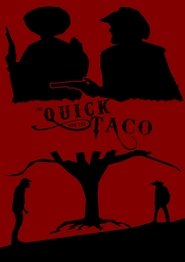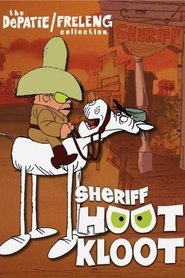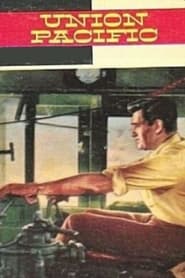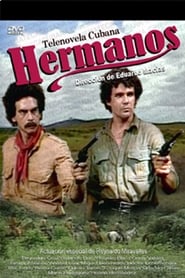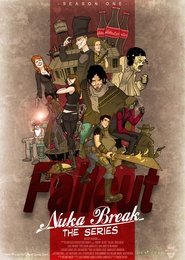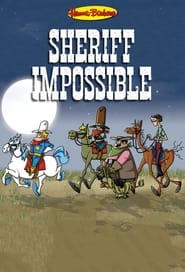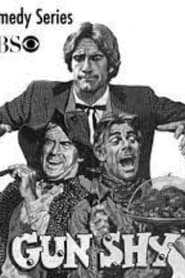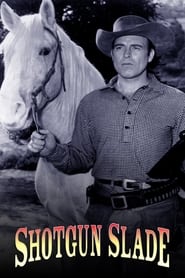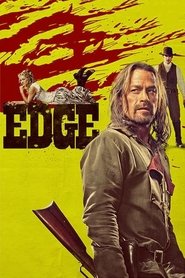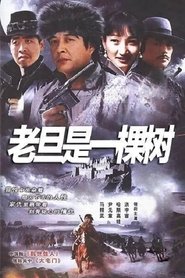Popular Western TV Series on Tub Tv - Page 15
-
Bring on the Dancing Horses
2023
star 5.8A modern-day western drama that tells the story of an assassin (Kate Bosworth) who is out to complete her list of targets and exact her own brand of poetic justice. -
Gunslingers
2014
Gunslingers
2014
star 7.1American Heroes Channel's new series Gunslingers reveals the infamous tales of survival and courage from the Wild West. Exposing little-known facts about America’s first villains and heroes, the six-part series features the stories of Wyatt Earp, Billy the Kid, Jesse James, Wild Bill Hickok, John Wesley Hardin and Tom Horn. Juxtaposed with vivid reenactments, expert commentary is layered throughout each episode to ensure the authenticity and historical accuracy of each story. Contributors include: David Milch, the creator of Deadwood; Bob Boze Bell, the executive editor of True West Magazine; and actor Kurt Russell (Tombstone). -
MIDST
2020
MIDST
2020
Midst follows three protagonists – a crotchety outlaw, a struggling cultist, and a diabolical bastard – as their paths intersect in unexpected ways in the town of Stationary Hill after the mysterious civilization known as the Trust becomes interested in the islet of Midst where the town is located. -
Durgo Rawhoshyo
2023
Durgo Rawhoshyo
2023
Seeds of crime, ploys of destruction, and legends of a hidden treasure lurk in an erstwhile royal fort of Jankigarh. Shotyaneshi Byomkesh Bakshi returns, along with Ajit and Satyabati, to unravel the mysteries in the dark hallways of the mysterious fortress. -
Wild Times
1980
Wild Times
1980
star 6Fictional Western adventure about dime novel hero-turned-Wild West show impresario Hugh Cardiff. -
Presented in Supercolorisation
2022
Prior to Stingray, Gerry Anderson produced three series in black and white - their only colour representation being a small number of on-set stills taken during production. Using these as a basis, key episodes of Four Feather Falls, Supercar and Fireball XL5 have been colourised from High Definition remasters using state-of-the-art software, enabling fans to see their favourite shows in a whole new way! -
Sara
1976
Sara
1976
star 5The story of Sara Yarnell, a schoolteacher who moves from Philadelphia to the Western frontier to start a new life. She becomes the only teacher in a one-room schoolhouse in Independence, Colorado. -
The Cowboys
1974
The Cowboys
1974
star 5The Cowboys was a short-lived Western television series based on the 1972 motion picture of the same name starring John Wayne. It aired on the American Broadcasting Company television network from February 6 to May 8, 1974. The television show starred Jim Davis, Diana Douglas, Moses Gunn, A Martinez, Robert Carradine, and Clay O'Brien. David Dortort, best known for Bonanza and The High Chaparral, produced the series. The television show, like the movie, followed the exploits of seven boys who worked on a ranch in 1870s New Mexico. The Cowboys began as an hour-long series, but ABC decided to reduce running time to a half hour format. The format change did not lead to increased viewers, and the show was the victim of early cancellation. Guest stars included Cal Bellini as Wa-Cha-Ka in "The Indian Givers", Kevin Hagen as Josh Redding in "Death on a Fast Horse", and Lurene Tuttle as Grandma Jesse in "Many a Good Horse Dies". -
Nomad of Nowhere
2018
Nomad of Nowhere
2018
star 6.3Nomad of Nowhere is a Western/Fantasy 2D animated web series developed by Rooster Teeth Productions. Set in Nowhere, a Western wasteland, Nomad is the world's last magical being, and bounty hunters are eager for the capture. -
The Secret Empire
1979
The Secret Empire
1979
star 5The Secret Empire is an American horror television series that premiered on February 27, 1979 on NBC as part of the series Cliffhangers. -
Sheriff Hoot Kloot
1973
Sheriff Hoot Kloot
1973
star 8"Hoot Kloot" was a series of 17 theatrical cartoon shorts produced by DePatie-Freleng Enterprises from 1973 to 1974. They featured Sheriff Hoot Kloot -- a diminutive, short-tempered lawman -- and his loyal horse Fester who try to maintain order in a remote western town. The series was later shown on television as part of the NBC Saturday morning cartoon series "Pink Panther and Friends." -
Union Pacific
1958
Union Pacific
1958
star 5Union Pacific is a Western television series starring Jeff Morrow, Judson Pratt and Susan Cummings that aired in syndication from 1958 until 1959. This show was inspired by the 1939 film also named Union Pacific, starring Joel McCrea, Barbara Stanwyck, and Robert Preston. The series follows the exploits of Bart McClelland, played by Morrow, as he supervises the construction and extension of the Union Pacific Railroad west of Omaha, Nebraska, to Promontory, northwest of Salt Lake City, Utah. McClelland was mostly concerned with right-of-way issues, which could be affected by stubborn landowners, ranchers, Indians, outlaws, and other factors. Helping McClelland with his work was surveyor Billy Kincaid, played by Pratt. Susan Cummings rounded out the cast as Georgia, proprietor of the Golden Nugget Saloon, the rolling bar that followed the railroad workers along the tracks. Union Pacific never developed a following and was cancelled after a single season. Union Pacific was filmed by California National Productions a -
Hermanos
0000
-
Fallout: Nuka Break
2011
-
Posse Impossible
1977
-
Gun Shy
1983
Gun Shy
1983
star 5Gun Shy is an American western comedy television series that aired from March 15 until April 19, 1983. -
Shotgun Slade
1959
Shotgun Slade
1959
star 5.7Shotgun Slade is an American western television series starring Scott Brady that aired seventy-eight episodes in syndication from October 24, 1959, until 1961. Created by Frank Gruber, the stories were written by John Berardino, Charissa Hughes, and Martin Berkeley. The series was filmed in Hollywood by Revue Studios. The pilot for Shotgun Slade aired earlier in 1959 on CBS's Schlitz Playhouse. -
Edge
2015
Edge
2015
Missouri, 1865. Josiah Hedges aka "Edge" returns home from the Civil War to discover his closest comrades-in-arms have betrayed him, sparking a bloody reign of vengeance. A mysterious beauty crosses Edge's path, and together they will uncover a dark conspiracy that extends to the highest ranks of American power. -
老旦是一棵树
1998
老旦是一棵树
1998
 Netflix
Netflix
 Amazon Prime Video
Amazon Prime Video
 Apple iTunes
Apple iTunes
 Apple TV Plus
Apple TV Plus
 Disney Plus
Disney Plus
 Google Play Movies
Google Play Movies
 Paramount Plus
Paramount Plus
 Hulu
Hulu
 HBO Max
HBO Max
 YouTube
YouTube
 fuboTV
fuboTV
 Peacock
Peacock
 Peacock Premium
Peacock Premium
 Amazon Video
Amazon Video
 The Roku Channel
The Roku Channel
 AMC+
AMC+
 Kocowa
Kocowa
 Hoopla
Hoopla
 The CW
The CW
 Vudu
Vudu
 Starz
Starz
 Showtime
Showtime
 PBS
PBS
 Pantaflix
Pantaflix
 FXNow
FXNow
 Tubi TV
Tubi TV
 Kanopy
Kanopy
 Comedy Central
Comedy Central
 Crunchyroll
Crunchyroll
 Microsoft Store
Microsoft Store
 Redbox
Redbox
 Sun Nxt
Sun Nxt
 ABC
ABC
 DIRECTV
DIRECTV
 Crackle
Crackle
 Fandor
Fandor
 Plex
Plex
